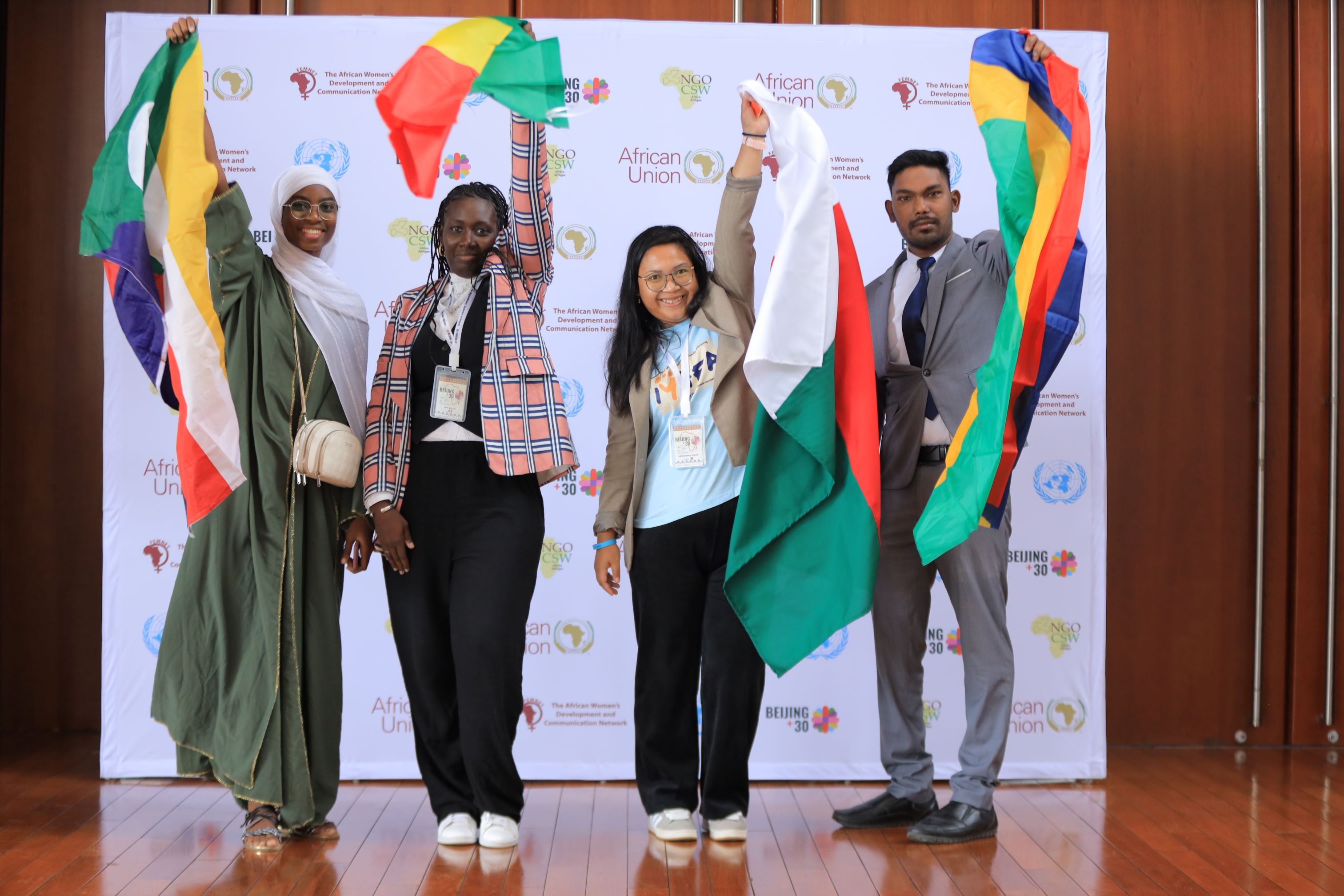Rising Leaders: African Youth, Young Women and Girls Shine at Africa Beijing +30 Review
Date:

With the support of the AU, for the first time in Africa’s history, 10 youth and 5 CSOs attended the Expert Group Meeting and Ministerial meetings for the Africa Beijing+30 and pre-CSW69 consultations in Addis Ababa, Ethiopia, from November 1-6, 2024. Across the world, the Beijing +30 Reviews are occurring amidst global challenges like economic crises, security shocks, climate change, and persistent gender-based discrimination, impacting progress towards Beijing Declaration and Platform for Action (BPfA) goals.
In 1995, the Fourth World Conference on Women led to the Beijing Declaration and Platform for Action, advocating for a world free from discrimination, violence, and inequality for every woman and girl. Leveraging UN Women’s triple mandate, regional offices in Africa collaborated with FEMNET, UNFPA and UNDP to ensure youth voices were central in the Beijing +30 discussions. The Beijing +30 Africa Youth Steering Committee, composed of youth from across Africa, convened over five regional consultations, reaching over 2000 young people through various platforms including social media like X and Tiktok.
UN Women facilitated the participation of 150 youth and CSOs at the CSO and Youth consultations on the margins of the Beijing +30 review in Addis Ababa. More than 30 self-sponsored young people and 100 self-sponsored CSOs attended, highlighting the importance of the Beijing +30 review in Africa. Participants included diverse groups such as girls, adolescents, people with disabilities, young women living with HIV, and young people from marginalized communities.
During the two-day CSO and Youth consultations , Youth developed an Africa Youth Common Position, presented to Member States during the Expert Group Meeting and Ministerial meeting. "Being part of the Beijing+30 consultations and Africa’s Pre-CSW negotiations was like nothing I’ve ever experienced, a profound milestone. For the first time, we saw African youth outnumbering traditional CSO representatives and directly influencing the drafting of Africa’s position paper. This was not just a symbolic gesture but a transformative moment, with every speaker at the Ministerial Conference acknowledging our presence and contributions,” said Wanjūhī Njoroge, a member of the ESARO Youth Steering Committee. “I felt the power of truly diverse voices shaping our continent’s present & future. I hope this sets a new standard, where youth are not just participants but recognized as equal, independent stakeholders within the AU and the UN,” she added.
The Africa Youth Common Position highlighted concerns about persistent patriarchal privileges and the slow enforcement of gender-responsive laws. 10 youth and 5 CSO representatives presented their Common Positions to the Experts Group Meeting. As Member States deliberated and negotiated, the impact of the Youth Common Position was evident, with youth and CSOs actively participating in negotiations. This marked the first time many young people were allowed to freely participate and consult with Member States.
Youth and CSOs were also observers during the ministerial meeting on November 6, a first for the African continent. They presented their statements, and speakers recognized the value of youth and Civil Society engagement. Hon. Betty Among, Minister of Gender and Social Protection in Uganda, applauded the youth and emphasized the need to include mental health in the Africa Common Position.
The Beijing +30 review process highlighted several outcomes and lessons learned. Improved participatory and inclusive engagement by UN Women led to a more connected youth constituency, though better communication channels are needed. Enhanced leadership, voice, and agency of young women and adolescent girls were noted, with many leading global discussions on gender equality. However, support for young feminists in advocacy is crucial, along with more spaces for impactful policy discussions and strategic political engagement.
The review and appraisal processes serve as a powerful mechanism for recognizing Africa’s progress, pinpointing areas for improvement, and ensuring that women’s and girls’ rights and voices are respected and advocated for across all levels of society.